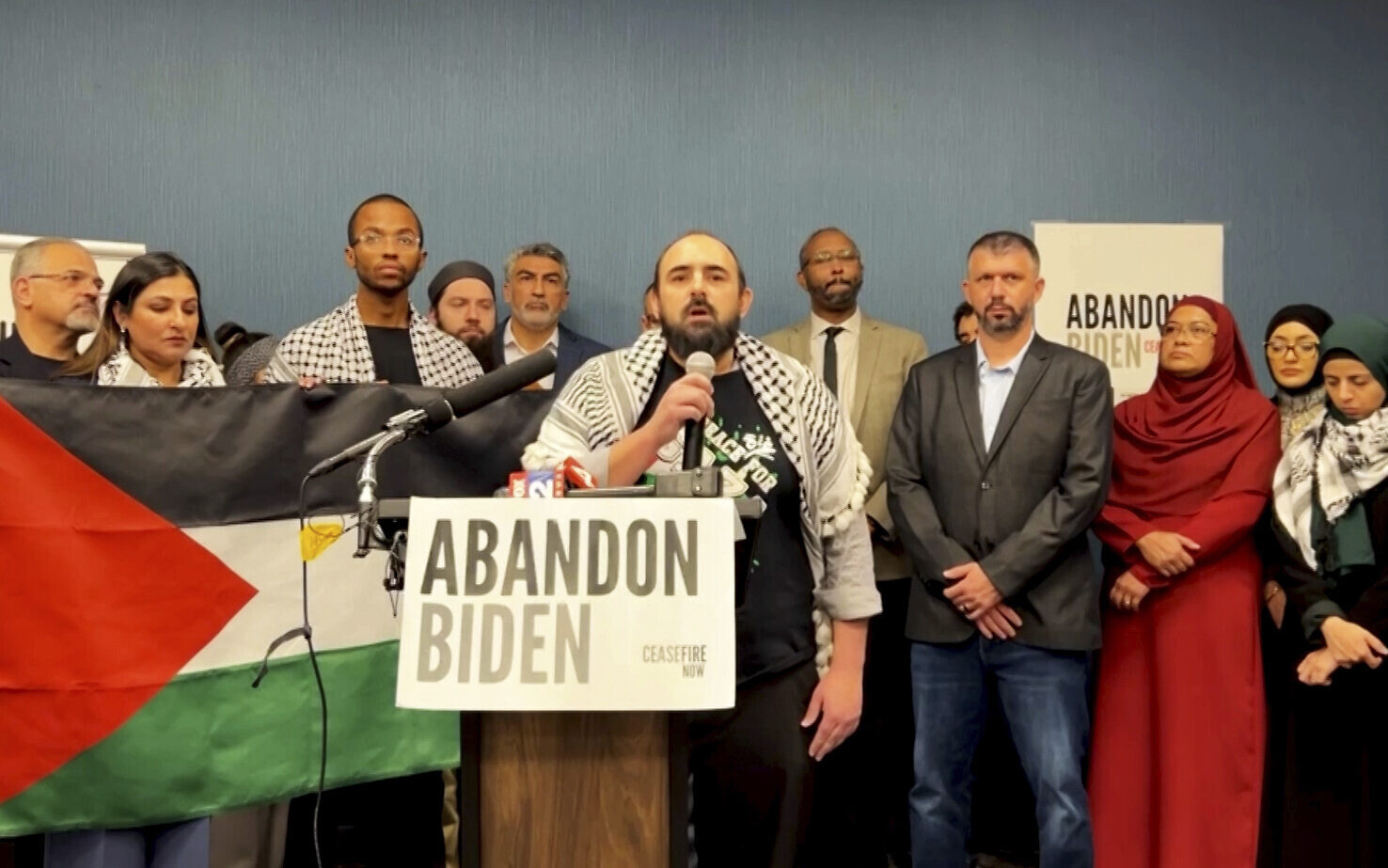The Israel-Gaza conflict has not only sparked international debates but is now influencing domestic politics in the United States. A growing movement, spearheaded by Muslim American leaders in pivotal states, is gaining momentum with the hashtag #AbandonBiden, as they express their dissatisfaction with President Joe Biden’s unwavering support for Israel’s actions in Gaza.
The campaign originated in Minnesota, where Muslim Americans demanded that Biden call for a ceasefire by October 31. Since then, it has expanded to key states such as Michigan, Arizona, Wisconsin, Pennsylvania, and Florida. The primary grievance revolves around the President’s refusal to advocate for a ceasefire in Gaza, prompting these communities to mobilize against his potential re-election in 2024.
The #AbandonBiden movement is strategically timed against the backdrop of the upcoming presidential election, serving as a symbolic withdrawal of support for Biden due to what the group perceives as a lack of commitment to calling for a ceasefire to protect innocent lives in Palestine and Israel. This opposition from sizable Muslim and Arab American populations in key states could pose a significant challenge to Biden’s Electoral College prospects.
During a news conference in Dearborn, Michigan, Jaylani Hussein, director of Minnesota’s Council on American-Islamic Relations (CAIR) chapter, emphasized that the Muslim community has multiple options, even outside the traditional two-party system. Independent candidates, such as Cornel West and Jill Stein, have expressed their support for a Gaza ceasefire, providing alternative choices for voters disenchanted with Biden’s stance.
While the US political landscape is predominantly shaped by the Democrats and Republicans, the #AbandonBiden movement sheds light on the potential influence of independent candidates. The influx of private donations into the political system, however, poses a challenge for candidates outside the major parties to achieve electoral success.
As the conflict continues, both US and Israeli officials have resisted pressure for a permanent halt in fighting. Vice President Kamala Harris echoed Biden’s assertion that Israel has the right to defend itself. The humanitarian toll on Palestinians in Gaza is substantial, with over 15,000 reported casualties since October 7.
The Muslim American community’s decision to distance itself from Biden is not an endorsement of former President Donald Trump but rather a strategic move to influence US policy. While they do not expect Trump to treat their community any better, withholding support from Biden is seen as a way to shape the political landscape and voice dissent against policies perceived as unfavorable.
The impact of this movement remains to be seen, but even marginal shifts in support could influence outcomes in states where Biden secured victory by narrow margins in 2020. A recent survey indicates a significant decline in Biden’s backing among Arab Americans, a crucial voting bloc in states like Michigan.
The #AbandonBiden campaign reflects the broader sentiment within the Muslim American community and highlights the potential role of domestic issues, especially those tied to foreign policy, in shaping electoral dynamics in the United States.
















